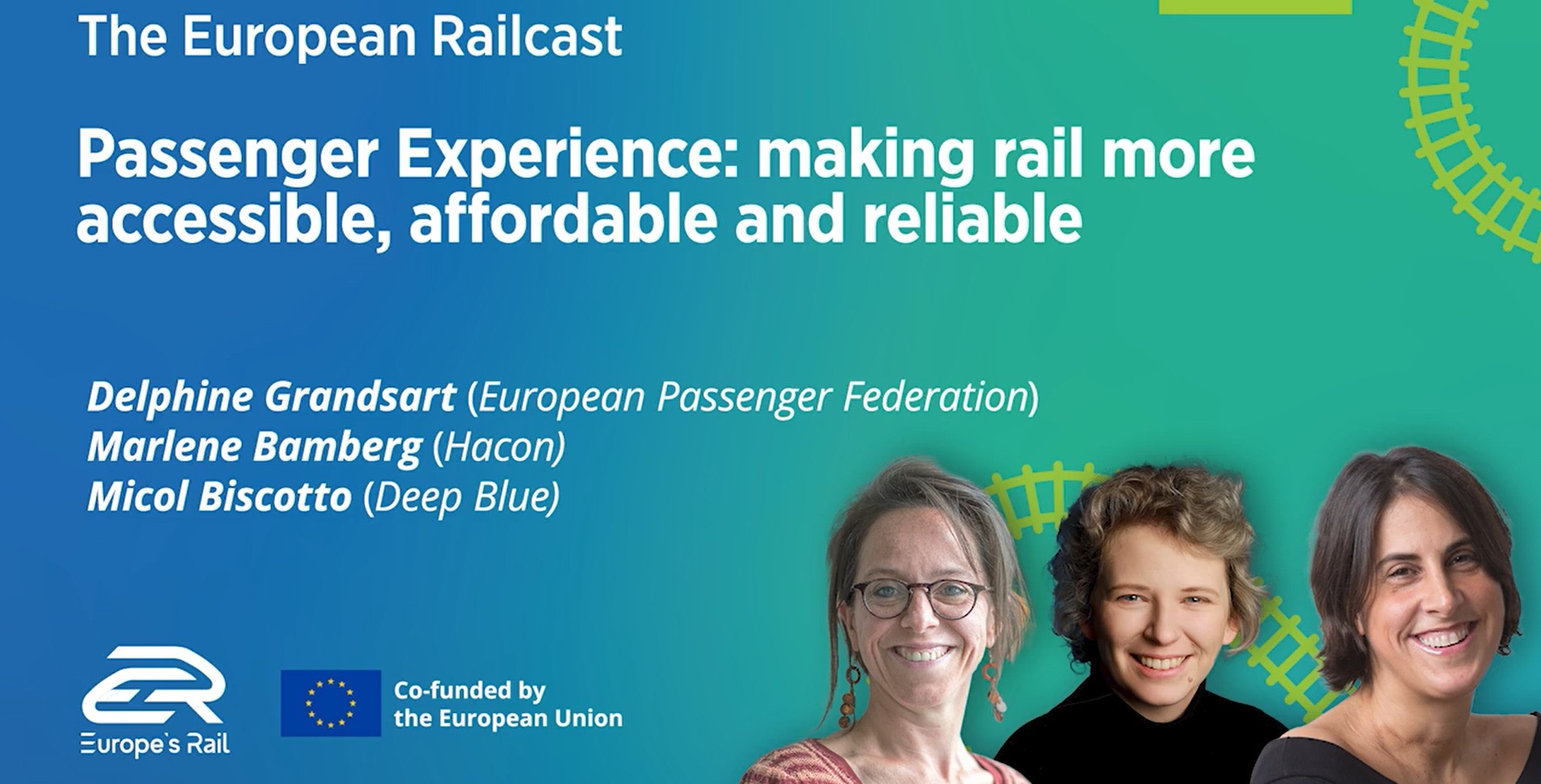
On 29 October, EPF’s Senior Researcher Delphine Grandsart participated in Episode 5 of the European Railcast:“The Passenger experience: Making Rail more Accessible, Affordable and Reliable”. The podcast, hosted by Jacki Davis, explored how Europe can build on existing progress to make rail travel seamless, multimodal, and more passenger-centred.
Delphine was joined by Micol Biscotto, Head of the Grant Office at Deep Blue and Coordinator of the EU-Rail/ SESAR 3 JU TravelWise Project, and Marlene Bamberg, Head of Team Funding at HaCon and Project Manager for the EU-Rail FP1 MOTIONAL Project.
Together, they discussed why passengers still face significant barriers when planning and booking multimodal or cross-border journeys including fragmented information, complex ticketing systems, missed connections, and accessibility challenges. Delphine emphasised that while local and regional progress shows what is possible, long-distance and international travel remains difficult because of both technological and commercial barriers.
Reflecting on EPF’s long-standing involvement in EU-Rail’s work on multimodal travel (including from the early IT2Rail and Shift2Rail IP4 projects), Delphine highlighted key user-centric needs such as accurate and transparent information, inclusion of all relevant operators, better accessibility data, neutral display of travel query results, adjustable transfer times, and one-stop-shop booking. She welcomed that many of EPF’s earlier recommendations have been considered in new EU-Rail projects, including FP1 MOTIONAL.
The discussion also addressed the ongoing research and innovation under TravelWise and FP1 MOTIONAL, including tools supporting integrated travel information, booking, ticketing, disruption management, and enhanced accessibility features for travellers with disabilities or reduced mobility. Delphine stressed the importance of inclusivity: “Travellers with disabilities or reduced mobility face additional difficulties, especially when transferring between modes… For these passengers, navigation support and assistance during transfers are critical”.
Looking ahead, she underlined that research and innovation must remain user-driven, focused on integration, inclusivity, and practical implementation: “Start with asking ‘what’s in it for passengers?’… Technology is a tool, not a goal. Keep it simple and prioritise practical, affordable and easy-to-implement solutions”.
🎙️ Full episode available now:
➨ On Spotify
➨ On YouTube


 Stay informed!
Stay informed!